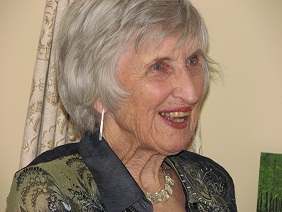We are delighted to announce that Dr Janet Carr, Honorary Senior Lecturer, has been awarded an OBE for services to people with Down’s Syndrome and their families.
Dr Carr, a pioneering psychologist, undertook a longitudinal study which began with 54 babies born between December 1963 and November 1964 and living with their families in a part of south-east England. Driven by an interest in people and behaviours and a sharply inquisitive mind, Dr Carr’s aim was to establish the children’s educational needs, developmental progress and to look at their family’s lives.
The research, which began when the babies were six weeks old, was conceived by the Medical Research Council psychiatric genetics research unit at London’s Maudsley Hospital. It was initially intended to last just 10 months but the young researcher wanted to look longer term and explore family interactions. Dr Carr discovered that, while the babies’ development was slower than their non-disabled peers, families coped well as the children grew, with youngsters bonding and developing good relationships with their brothers and sisters.
This was at a time when the “intellectually handicapped”, as people with Down’s syndrome were then known, were regarded as non-persons to be consigned to institutions. Carr wrote up the research as her doctoral thesis in 1970-71. Although she assumed the project was over, she began sending birthday cards – something she continues to this day. “I wonder what I had in mind writing on birthdays … maybe subliminally [I knew I’d continue],” she says smiling. After 50 years this has become the world’s longest running research project into people with Down’s Syndrome.
Congratulations too go to Julie Nixon, who has also worked closely with Tizard over the years has been awarded Medallist of the Order of the British Empire in the Queen’s Birthday awards in recognition of her contribution as a foster carer and for services to children and families. Julie worked with us as a teaching fellow on the old diploma in applied psychology of learning disabilities (challenging behaviour) in the 1990’s and early 2000’s and then until last year, as a guest lecturer on the autism studies UG programme. A learning disability nurse by background she left the Tizard to focus on her fostering career.

